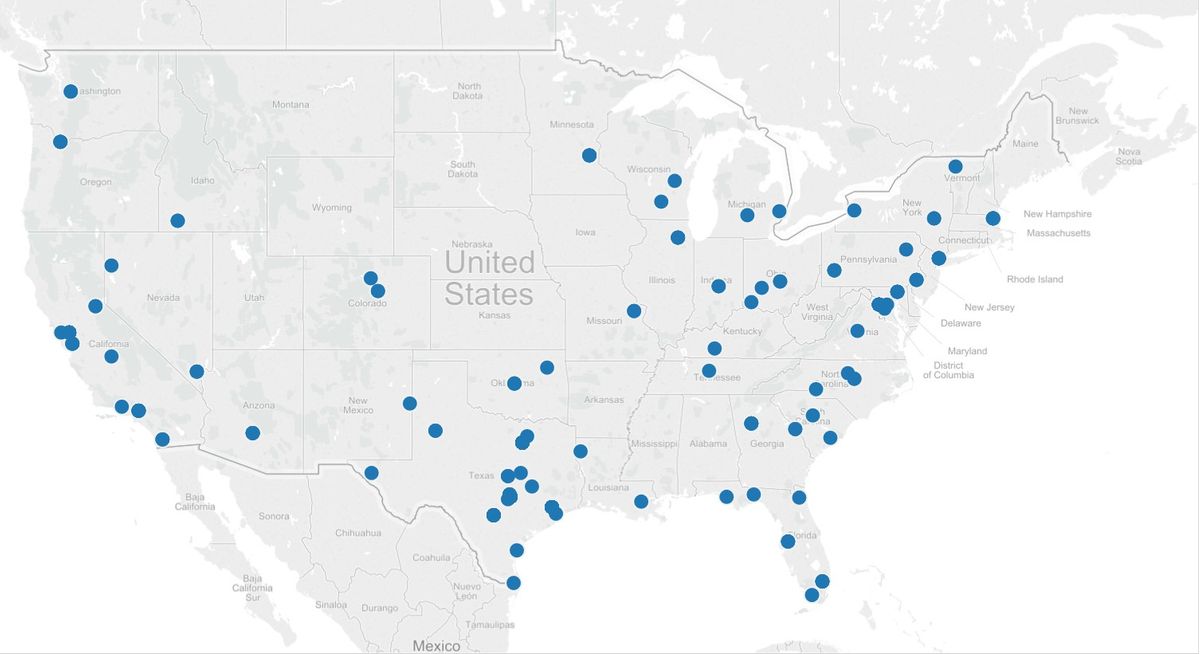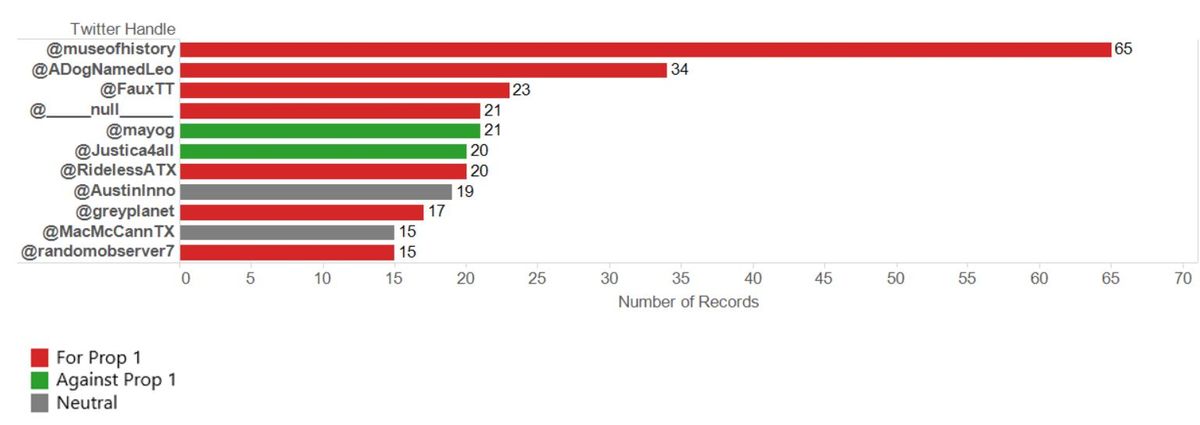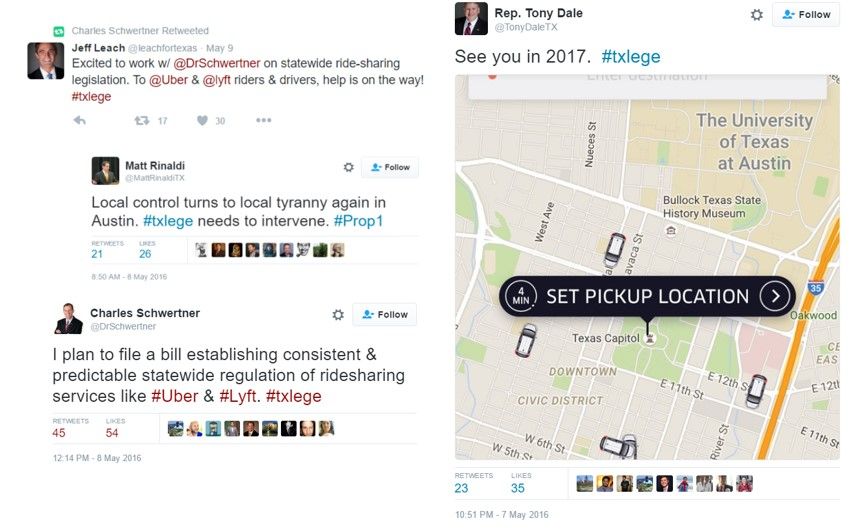After Austin’s Proposition 1 was defeated in a close 56% to 44% vote in early May, showing that voters wanted to keep the city’s required fingerprint background checks, we were curious to see how people were discussing the results on social media. People for and against the proposition were active on Twitter leading up to the vote in an effort to educate voters on the situation. But how were Twitter users reacting after such a close vote? What clues could we find to help predict what was next for ridesharing in Austin? To find out we took a sample of approximately 3,000 tweets that included #Prop1 over the span of 10 days following the vote and searched for trends in the data.
Leading up to the vote (and after) a common theme was that the results in Austin would set a national precedent for cities to require fingerprinting. Although this was a vote over a local issue, it was covered by national media outlets including USA Today, Forbes, Huffington Post, The New York Times, and many more. #Prop1 tweets poured in from around the country, as shown in the map below.






